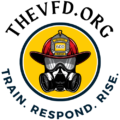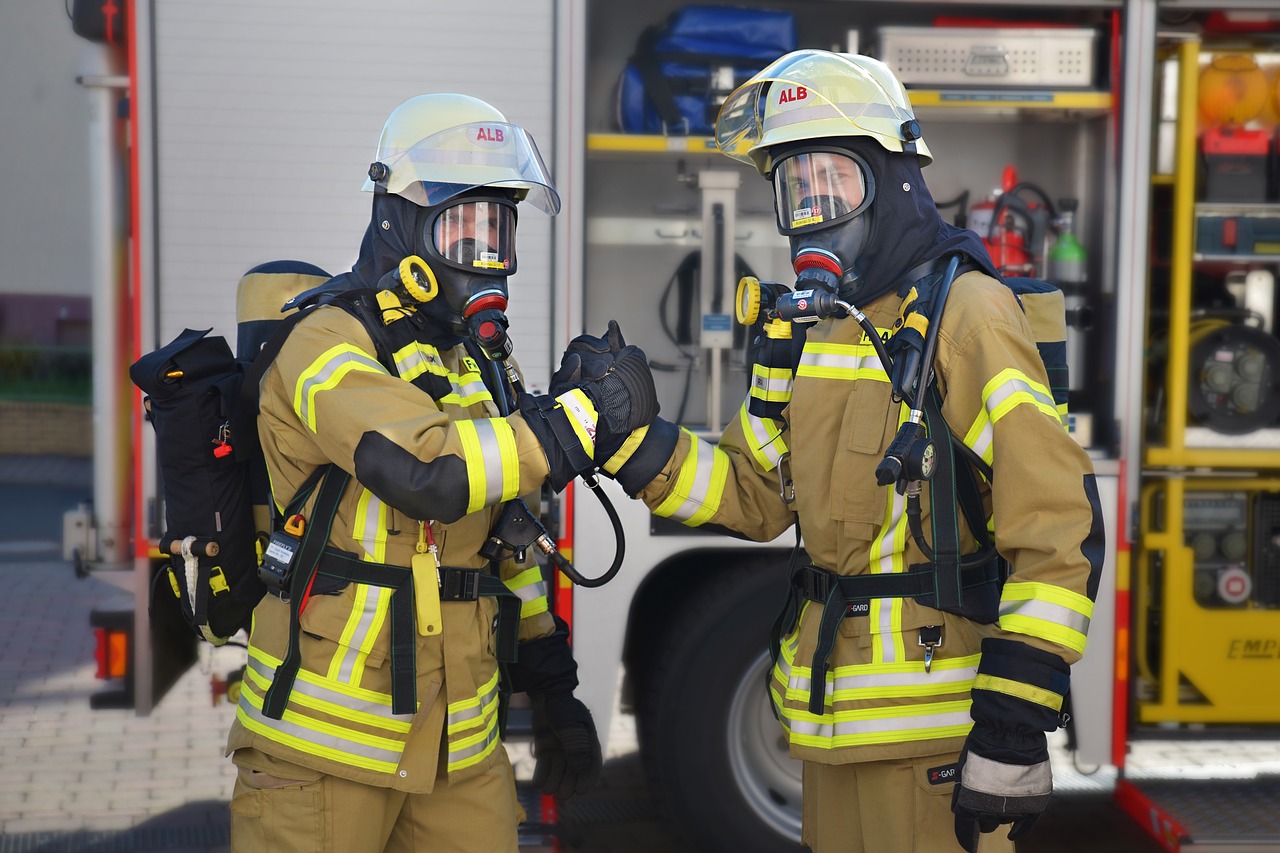You play a critical role in ensuring the safety and success of your team on the fire ground. Effective leadership is vital in a volunteer fire department to navigate high-stress situations and coordinate resources efficiently. In this blog post, we will explore strategies that will help you become a more effective leader on the fire ground, ensuring the best possible outcome for your team and the community you serve.
Effective Communication Strategies
Clear Command and Control
Strategies: Your ability to establish clear command and control on the fire ground is crucial for effective communication and ensuring the safety of your team. As a leader in a volunteer fire department, it’s vital to communicate your instructions clearly and decisively. Make sure that everyone understands their roles and responsibilities, and establish a chain of command to avoid confusion during emergencies.
Active Listening and Feedback
To: Your role as a leader also involves active listening and providing feedback to your team members. Actively listen to their concerns, ideas, and suggestions. Encourage an open communication environment where everyone feels heard and valued. Providing constructive feedback in a respectful manner can help improve performance and strengthen team cohesion.
Listening: Keep in mind, effective communication is a two-way street. **Listen** actively to what your team members are saying, both verbally and non-verbally. Pay attention to their body language and emotions to better understand their perspectives and needs. **Feedback** should be specific, timely, and focused on behaviors that can be changed. This approach fosters a culture of continuous improvement and trust within your volunteer fire department.
Situational Awareness and Assessment
Even in the midst of chaos and uncertainty on the fire ground, it is crucial for you as a leader in a volunteer fire department to maintain situational awareness. Being aware of your surroundings, understanding the current conditions, and assessing the risks involved are crucial for effective decision-making and safety of your team. For more insights on incident command in firefighting, you can refer to the Incident Commander Tips For Volunteer Firefighters.
Reading the Fire Ground
Situational awareness involves reading the fire ground and interpreting the information it provides. This includes understanding fire behavior, building construction, and potential hazards. By observing smoke color, airflow patterns, and building layout, you can gather critical information to make informed decisions during firefighting operations.
Identifying Hazards and Risks
Ground yourself in identifying hazards and risks present in the fire environment. This includes recognizing structural instabilities, hazardous materials, and potential collapse zones. **By pinpointing these dangers early on, you can effectively mitigate risks and safeguard your team’s well-being.**
Understanding the magnitude of **hazards** and risks on the fire ground is paramount in ensuring a safe and efficient firefighting operation. By continuously assessing the situation and staying updated on changing conditions, you can adapt your strategies and allocate resources effectively. Prioritizing the most critical tasks and resources based on the identified risks is key to managing emergencies in a volunteer fire department.
Decision-Making and Problem-Solving
Despite the intense nature of fire ground operations in a volunteer fire department, strong leadership is crucial to ensure effective decision-making and problem-solving. As a leader, it is important that you possess the skills to think critically and analyze situations quickly and accurately.
Critical Thinking and Analysis
With the limited time and high-pressure environment you face on the fire ground, it is important to be able to assess the situation rapidly and make informed decisions. You must be able to analyze all available information, assess risks, and consider potential outcomes before deciding on a course of action.
Weighing Options and Making Decisions
Problem-solving in the fire service involves evaluating multiple options and determining the best course of action based on the available information. Making decisions quickly and effectively can mean the difference between life and death in emergency situations, so you must be able to weigh the options carefully and choose the most appropriate response.
Effective leaders in the fire service understand that decisions must be made confidently and swiftly, even when faced with uncertainty. By honing your decision-making skills and practicing making tough calls under pressure, you can enhance your ability to lead effectively on the fire ground.
Adapting to Changing Situations
To be a successful leader in the fire service, you must be able to adapt quickly to changing situations. Fires and emergencies are dynamic, and you must be prepared to adjust your plans and strategies as new information becomes available.
Weighing the options and being able to pivot seamlessly when circumstances change is a critical skill for fire service leaders. By staying flexible and maintaining a clear focus on the ultimate goal of ensuring the safety and well-being of all personnel involved, you can navigate through uncertain and challenging situations with confidence and effectiveness.
Team Building and Leadership
Empowering Team Members
Building a strong team in a volunteer fire department begins with empowering your team members. Empowering your team means giving them the tools, resources, and trust to make decisions and take ownership of their responsibilities. By delegating tasks and responsibilities effectively, you show your team that you trust their abilities and judgment, which boosts morale and encourages them to perform at their best.
Building Trust and Confidence
Team building in a volunteer fire department relies heavily on trust and confidence among team members. Team members need to trust each other’s abilities, decisions, and support in challenging situations. By fostering a culture of open communication, respect, and support, you can build trust among team members, leading to increased confidence in each other’s capabilities.
This trust and confidence are crucial on the fire ground, where split-second decisions can make a significant difference in outcomes. By building a team that trusts and supports each other, you create a solid foundation for effective and efficient operations in high-stress situations.
Leading by Example
This leadership strategy involves leading by example. As a leader in a volunteer fire department, you must set the standard for behavior, work ethic, and professionalism. By demonstrating a strong work ethic, commitment to training, and dedication to the mission, you inspire your team members to follow suit.
When empowering your team members and building trust and confidence, remember that your actions speak louder than words. An effective leader leads by example, showing dedication, integrity, and a commitment to excellence in all aspects of their role.
Time Management and Prioritization
For effective leadership on the fire ground in a volunteer fire department, time management and prioritization are crucial skills to master. As a leader, you must be able to assess and manage multiple tasks and emergencies simultaneously, ensuring that each is addressed in the order of importance and urgency.
Managing Multiple Tasks and Emergencies
Prioritization is key when faced with multiple tasks and emergencies. Evaluate the situation, determine the critical needs, and allocate resources accordingly. By **prioritizing**, you can ensure that the most urgent issues are dealt with first, minimizing damage and maximizing efficiency.
Delegating Tasks and Responsibilities
Management of tasks involves delegating responsibilities effectively. Assign tasks to individuals based on their skills and expertise, **ensuring** that each member knows what is expected of them. Delegating tasks allows you to focus on the bigger picture and ensures that everything gets done in a timely manner.
Tasks that are simple or routine can be delegated to other team members, freeing you up to handle more complex or critical responsibilities. By **delegating** effectively, you can make the most of your team’s strengths and capabilities, improving overall efficiency and performance.
Maintaining Situational Awareness
**Delegating** tasks and responsibilities also means **ensuring** that you maintain situational awareness at all times. Keep track of developments, monitor the progress of tasks, and stay informed about changing conditions on the fire ground. **Maintaining** situational awareness allows you to make **informed decisions** in real-time and adapt to evolving circumstances swiftly.
Adapting to Unpredictable Situations
Keep in mind that as a leader on the fire ground in a volunteer fire department, you must be prepared to adapt to unpredictable situations. This ability to adjust and respond effectively is crucial in ensuring the safety and success of the firefighting operation.
Staying Calm Under Pressure
Situations on the fire ground can escalate rapidly, requiring you to stay calm under immense pressure. Remaining composed and level-headed in these intense moments is necessary for making sound decisions and guiding your team through the crisis. Remember to focus on the task at hand and trust your training and experience to help you navigate through challenging situations.
Thinking on Your Feet
One necessary skill for a fire ground leader is the ability to think on your feet. Quickly assessing the situation and making instant decisions can be the difference between a successful outcome and a potential disaster. This requires sharp critical thinking skills, adaptability, and confidence in your judgment under pressure.
Thinking on your feet also involves anticipating potential obstacles and having contingency plans in place. By staying proactive and thinking ahead, you can better respond to unforeseen challenges and keep the operation running smoothly.
Improvising and Innovating
Adapting to unpredictable situations often involves the need to improvise and innovate. Being resourceful and creative in finding solutions to unexpected problems is a valuable skill for a fire ground leader. Whether it’s utilizing available resources in new ways or coming up with innovative strategies on the spot, your ability to think outside the box can be a game-changer in dynamic firefighting scenarios.
Any successful leader knows that flexibility and adaptability are key traits when faced with constantly evolving circumstances. Embracing change and embracing new ideas can lead to improved outcomes and a more effective firefighting operation.
To wrap up
Following this detailed exploration of leadership strategies for the fire ground in a volunteer fire department, you are now equipped with valuable insights and practical tips to enhance your leadership skills. Be mindful of, leadership is not about a title or position; it is about your actions, attitude, and ability to inspire and guide your team effectively.
By implementing the strategies discussed in this article, you can create a positive and efficient work environment, where teamwork and communication thrive. Continuously strive to lead by example, prioritize safety, and empower your team members to contribute their best to the mission. Your dedication to improving your leadership skills will not only benefit your team but also elevate the overall performance and success of your volunteer fire department.


